LATEST NEWS
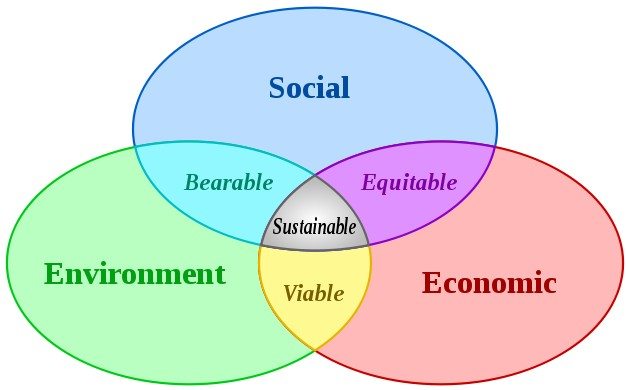
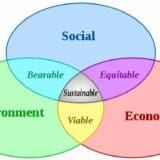
By Ashley McCormack
One of the major focuses of this presidential election year is the economy and the ways we can create jobs. President Obama’s State of the Union address and the Republican debates make it clear that everyone has an opinion about how to put Americans back to work. It’s equally evident that a good jobs plan must build a sustainable American economy – from an environmental standpoint as well as one that will benefit the next generation, and employ people in the kind of jobs that will keep America competitive in the global economy.
 Each year, the BlueGreen Alliance hosts Good Jobs, Green Jobs, a national conference bringing together labor, environmental, business and elected leaders to discuss how we can build an economy that creates precisely such jobs. In this pivotal year, instead of hosting one national conference, the BlueGreen Alliance will hold Good Jobs,
Each year, the BlueGreen Alliance hosts Good Jobs, Green Jobs, a national conference bringing together labor, environmental, business and elected leaders to discuss how we can build an economy that creates precisely such jobs. In this pivotal year, instead of hosting one national conference, the BlueGreen Alliance will hold Good Jobs,


It’s fascinating to watch an industry attempt to define and structure itself as it comes together. Imagine Silicon Valley in the late 1990s, nuclear power in the 1960s, alcohol in the 1930s, or the auto industry in the 1900s and 1910s.
I got to see shades of this recently when I visited the High Times Medical Cannabis Cup, held at L.A. Center Studios. Despite the carnival atmosphere, this was essentially a trade show for an industry in its inception. A friend had to deliver some union materials to a labor-friendly vendor, and I tagged along, chatting with representatives from all segments of the industry.
Most press accounts have caricatured the industry as a joke. But with potential national revenue that could be as large as $120 billion annually (estimating the true size is notoriously difficult), and with boosters predicting potential California employment in the tens of thousands,
» Read more about: Seeing Green: Is an Underground Industry Going Legit? »


It wasn’t exactly Tahrir Square, but one recent Saturday afternoon, through modern technology, I joined an estimated two million people throughout Latin America, the U.S. and Canada in 500 different venues to experience a different kind of democracy movement – call it musical democracy.
We were all gathered to watch Gustavo Dudamel of the LA Philharmonic Orchestra conduct 1,400 performers in Gustav Mahler’s Eighth Symphony in Caracas, Venezuela.
The 1,200 young members of the chorus, and the Venezuelan musicians who played alongside the pros of the LA Phil, are products of “El Sistema,” the innovative choral and orchestral training system aimed at the country’s poorest children . The program currently involves 250,000 kids and 135 youth orchestras throughout the nation of 30 million. Dudamel is a product of that system, as are the numerous talented Venezuelan musicians now getting scooped up by topnotch classical music venues throughout the world.
Founded as an anti-drug,
» Read more about: Gustav, Meet Gustavo: Hearing Mahler in the Cineplex »


(The Los Angeles Alliance for a New Economy has just released its guide for policy activists in the form of a graphic novel and anthology of case studies. Here is veteran television producer Norman Lear’s forward to They Said It Was Impossible! How to Win Progressive Change When the Odds Are Against Us.)
I frequently meet people who love this country and worry that it is in deep trouble, but don’t know what they can do about it. It’s hard for them to see how an individual can make a real difference when our problems are so big.
But our history tells us that when individuals get together, we can create real and lasting change. And this publication tells us how LAANE is successfully taking on the challenge of building a new economy, one that is fair,
» Read more about: Norman Lear: Reclaiming Our Country, the Smart Way »
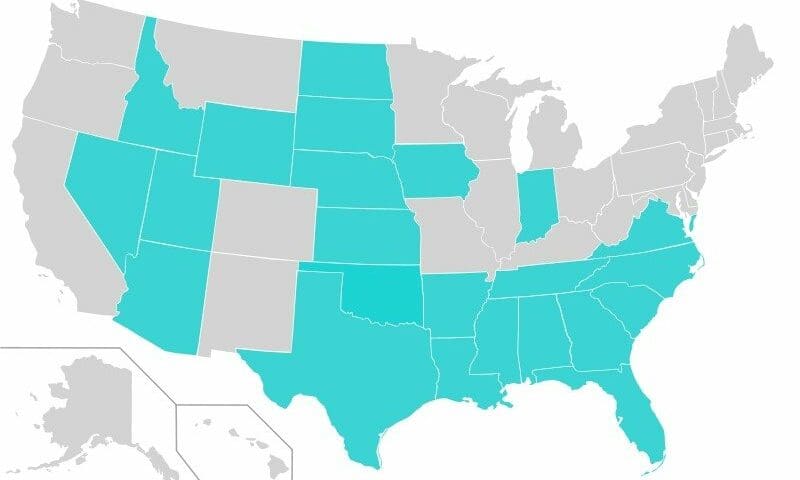

We’re currently riding a serious wave of attacks on labor unions from politicians. (Generally, but not exclusively, this has come from the GOP.) We all know about the assaults on public employee unions that started last year in Wisconsin, and have spread across the country, with proposed or enacted legislation in states such as Michigan, Ohio (subsequently repealed by voters), Indiana, and most egregiously, Arizona.
And then there’s the resurgence of so-called Right to Work legislation, which was just signed into law in Indiana, which became the first state to go RTW since Oklahoma in 2001. (That makes 23 right to work states overall.) Similar legislation is pending elsewhere, including Ohio, Minnesota, Michigan, and New Hampshire. Even states that are already right to work, like South Carolina, just want to get a little right to workier.
With Romney needing to establish more conservative cred,
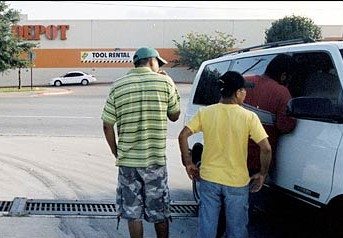
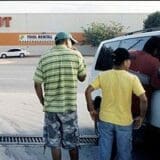
Americans may be almost evenly divided about why a few people get so rich. But when it comes to why people are poor, there’s a general consensus: If people are poor, it’s their own damned fault!
This belief comes to us from British attitudes. Debtor prisons had a long tradition across the world, but England taught us that poverty was a moral failing. People were poor because they were sinful or impious or wastrels, so nothing could be done about it, and nothing should be done. Most Americans hold a similar view to this day, which is why the old “Welfare Queen” trope works so well for politicians.
Reality is less exotic. Real institutional systems make people poor and keep them there. Take wages. Despite California’s above-the-national-average minimum wage, no one can raise a family on it. Yet 65 percent of minimum-wage employees are the sole support of their family, on an income of only $16,640 a year.


On and off for two years – between 1988 and 1993 – I worked at the law firm of Latham and Watkins, representing some of the most powerful developers and corporations in Los Angeles. I vividly remember going down to the council chambers in City Hall, standing at the rope separating the public from council members and watching my colleagues pull lawmakers over to lay out what needed to be done in support of a development proposal or a big city contract. I would look around the council chambers and – unless there was some rare public controversy that brought a lot of people down to City Hall – I would see only white lawyers and lobbyists dressed in fancy suits who essentially owned the place.
When I left Latham and Watkins and helped to start LAANE in 1993, I resolved to bring the knowledge of developer lobbyists into our work and get thousands of real people from all stripes down to City Hall.
» Read more about: LA’s Redistricting War and the Health of Our Democracy »
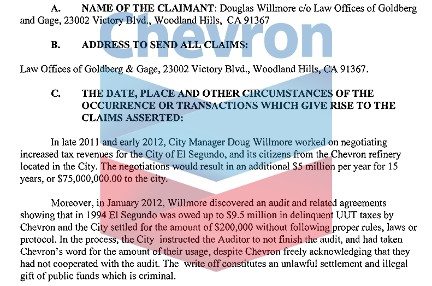

The skirmish of words in El Segundo over its city manager’s proposal to raise local taxes on that city’s largest business, Chevron Oil, has suddenly become a full-fledged legal war, with the official making explosive accusations against both El Segundo’s government and Chevron. The story, which Donald Cohen has been following for Frying Pan News, began with Doug Willmore’s efforts to bring the giant refinery’s taxes in line with the taxes paid by other California oil companies. Willmore was subsequently fired on February 9 by El Segundo’s city council.
In response, the ousted city manager has filed a governmental claim against El Segundo, a forerunner to a lawsuit. In it, Willmore claims that:
» Read more about: El Segundo Inc.: Furor Over Chevron’s Sweetheart Deal »


February 13 was a big day for those who want Los Angeles to lead the way in greening our cities. After a contentious all-day hearing, the L.A. City Board of Public Works unanimously approved the Bureau of Sanitation’s recommendation to transform trash collection from businesses and large apartment buildings.
Under the new system, which must still be approved by the City Council, haulers will operate under an exclusive franchise system with environmental standards and accountability. This means, finally, that our city will know who is picking up trash where, when and how — and that only responsible haulers, committed to playing by the rules, will be picking up and processing our trash.
One of the themes heard repeatedly during public testimony at last week’s board hearing was that an exclusive system is going to raise costs. And there was a magic number to go along with the cry: 33 percent!
» Read more about: Junk Math: The Waste Industry’s Numbers Don’t Add Up »

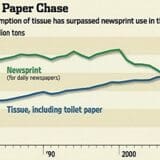
(Note: This post first appeared on Grist.com.)
By Christopher Mims
Maybe you’ve heard that we’re now using more trees for toilet paper than for newsprint. (Not least because the newspaper industry is even more in the toilet than toilet paper.) But did you know that because of Americans’ demand for super-soft TP for our bungholes, 98 percent of the pulp used to make the stuff comes from virgin wood?
“Future generations are going to look at the way we make toilet paper as one of the greatest excesses of our age. Making toilet paper from virgin wood is a lot worse than driving Hummers in terms of global warming pollution,” Allen Hershkowitz, a senior scientist at the Natural Resources Defence Council, told the Guardian.
More toilet paper used to be made out of recycled office paper,
» Read more about: Let’s Ban Toilet Paper, Some Enviros Say »


(Note: This post first appeared on Philanthropy New York’s Smart Assets blog.)
By Beth Herz
Leading the charge on an issue can bring an organization’s work into the spotlight—and sometimes also under a microscope. Madeline Janis, Executive Director of the Los Angeles Alliance for a New Economy (LAANE), learned this when her own organization’s work came under scrutiny for less-than-benevolent reasons. While under her leadership, LAANE learned that an unnamed political ops firm was conducting a careful investigation of all of its records, apparently intending to find fodder for a smear campaign.
On November 29th, Philanthropy New York hosted a funders briefing to discuss the rise of this type of political attack on advocacy work and the roles foundations can play in responding. The briefing’s two panels included Madeline Janis’s story and a case study from Cecile Richards, President of Planned Parenthood.
» Read more about: How to Fund Advocacy in Polarized Political Times »


El Segundo city manager Doug Willmore didn’t know who he was messing with.
In January, 2012 the L.A. Times reported that El Segundo, home to a huge Chevron refinery, was considering raising the oil giant’s taxes to help meet the demands of a growing town. Refineries around the state pay far higher taxes to their local governments than Chevron does – which is why Willmore figured the proposal made sense.
Chevron’s El Segundo tax bill is $5 million, far less than other cities receive from their refineries. Torrance got $9.8 million from Exxon Mobil and Carson got $10.2 million from BP. Chevron paid $15.4 million to Richmond for its Northern California facility.
Chevron, of course, wants to hold on to its growing profits and is fighting hard against any tax increase. When the proposal first came forward Chevron reacted with disbelief that the proposal would be made public before they knew about it.


It’s about 6 p.m. and I’m speed-walking to the Seventh and Figueroa Red Line stop to make sure I catch the train after work. At 6:10, the train promptly arrives at the platform and I’m home in 12 minutes. Fortunately, I never have to think twice about hopping on that train or worry about whether the train will shut down or collapse. I also have a convenient alternative to sitting in traffic, and while riding the train I feel secure knowing that our subway system was safely built by skilled hands thanks to government investment in our transit system.
But with the state of the economy and all the talk about the decline of our infrastructure in the United States, I wonder if I have taken what public transportation we have for granted. Then I say to myself, “I’ll cross that bridge when I get there.” (Pun may or may not be intended.)
Here in Los Angeles,
» Read more about: How Congressional Gridlock Is Wreaking Havoc on Our Streets »

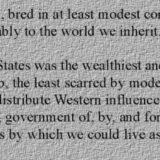
Recently I was invited to speak at a conference marking the 50th anniversary of the Port Huron Statement. Never heard of it?
In 1962, at a United Auto Workers conference center in Port Huron, Michigan, about 60 student activists collectively hammered out what they named an “Agenda for a Generation” with the strong belief that this document could help create the world they hoped for. “We regard men as infinitely precious and possessed of unfulfilled capacities for reason, freedom, and love,” it optimistically declared.
Most were in their 20s, several veterans of civil rights sit-ins or campaigns to end the nuclear arms race. Participatory Democracy was the overall framework – a political vision in which people have power over the decisions that affect their lives. In all-night sessions they argued about wording and emphasis and produced a document that addressed the major challenges of unrepresentative politics, a profit-driven economy and inequality at home and abroad.


“James, would you mind driving me to Wal-Mart?”
Ugh.
My mother-in-law asked me this question on a day when my wife was at work and I was desperately trying to get some writing accomplished. I knew it was going to be a tough week to entertain, long before Gerry arrived — a clash of union meetings, picketing and writing classes at Bergamot Station in Santa Monica.
I was typing at the computer in our small, one-bedroom apartment when she posed the question to me. I tried not to overreact, but I’m sure my eyebrows constricted tighter than I had intended.
“Wal-Mart?” I replied. “You want me to drive you to . . . Wal-Mart?”
She nodded. “I’d like to go the garden center and pick up some things.”
I didn’t want to drive to Wal-Mart, but when it came down to it I decided I would rather be on the wrong side of my union than on the wrong side of my mother-in-law. » Read more about: My Mother-in-Law’s Wal-Mart Moment »
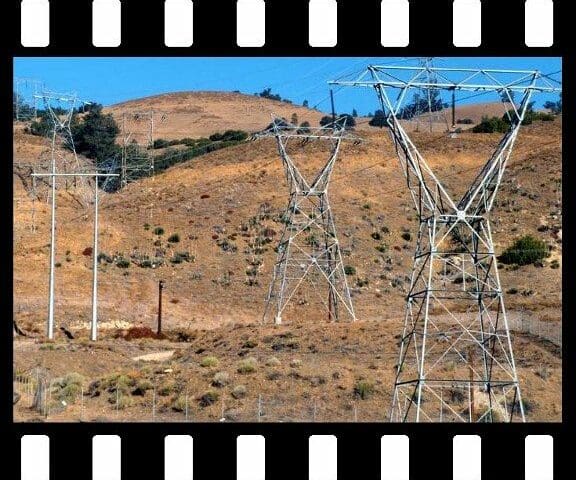

George Garrigues/Wikimedia
The emergence of Los Angeles as one of the world’s great cities, despite its location in a resource-stressed desert basin, has always been the surprise outcome of an unnatural act. L.A.’s stunning growth has been fed by a vast network of electric transmission wires that have, for 100 years, drawn in power from around the West to fuel the always-enlarging economic engines of the city.
This form of urban nourishment has been orchestrated by the city-owned Department of Water and Power (LADWP), which has historically provided L.A. with extremely reliable power at an unusually low price. But now, like utilities around the nation, the DWP is facing serious challenges.
First, the DWP will have to provide more and more power to the city. The population of Los Angeles is going to keep expanding, and with technological innovations like electric vehicles, the need for power will only increase.
» Read more about: DWP’s Power Struggle and the Future of LA »


The U.S. Supreme Court’s recent decision declining to hear an appeal of the L.A. Grocery Worker Retention Ordinance sparked protests from the California Grocers Association. The CGA claimed that the ordinance, which protects the jobs of grocery employees following an ownership change, will do more harm than good in communities suffering from lack of access to healthy food options. Dave Heylen, speaking to the L.A. Business Journal on behalf of the CGA, had this to say: “Our industry and community health groups have long been working to bring more stores into these underserved areas.”
Since when?
For decades, as grocery stores fled South and East Los Angeles, community groups demanded answers from the industry, only to hear the same refrain over and over again. “It’s too difficult to operate in poor neighborhoods.” “Costs are too high.” The Los Angeles Community Redevelopment Agency,
» Read more about: Grocers Association Fights Food Deserts! Really? »


(Note: Brian Beutler’s post first appeared on Talking Points Memo. Frying Pan News presents it here as a snapshot of the Congressional fight over the future of America’s social safety net and does not intend it to be an endorsement of one political party or criticism of another.)
The GOP’s accession to reality on the payroll tax cut is being cast as a key victory for Democrats and President Obama. Republicans caved, the payroll tax will almost certainly be renewed, and the economy won’t take a tough hit just as the recovery’s beginning to accelerate.
But it also reveals a flaw — a potentially huge flaw — in the conservative movement’s generational strategy to roll back the federal safety net.
These might sound like two wildly disparate issues, but they’re actually variations on a years-long theme.
» Read more about: Payroll Tax Cut to Extend; Entitlement Fights Loom »
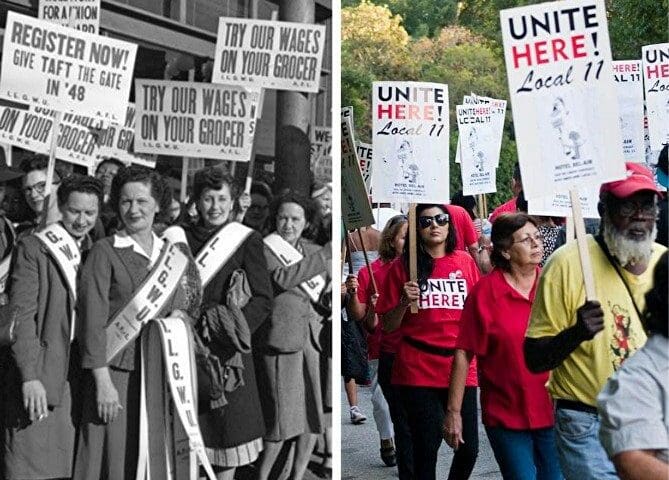
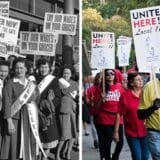
(Note: This January 27 post by David Madland and Nick Bunker appeared on the Center for American Progress’ Action Fund blog.)
The Bureau of Labor Statistics, or BLS, data released today on the union status of the American workforce in 2011 show no growth in union membership—a troubling sign as the nation debates how to strengthen the middle class. That’s because unions help strengthen the middle class by giving workers a voice in the economy and our democracy. Yet the fact that union membership didn’t significantly decline—even amid a weak economy and harsh political opposition—is a significant accomplishment and offers some hope for the future.
Overall, the BLS figures show that the union membership rate fell from 11.9 percent in 2010 to 11.8 percent in 2011, but the difference is so small that the rate effectively stayed the same.
» Read more about: Unions Are the Foundation of America's Middle Class »